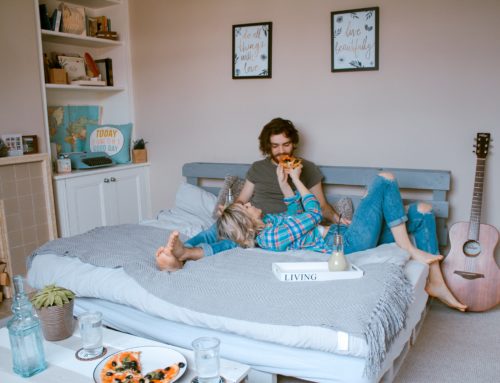There are approximately six million unmarried couples living together here in the UK. With an increasing number of people deciding to cohabit without being married, it’s more important than ever to be aware of the implications.
The fact of the matter is that cohabiting couples don’t have the same rights as married couples. So, with that in mind, how should cohabiting couples protect their assets in the event of a relationship breakdown? Let’s take a look.
The property
When you’re buying a property as an unmarried couple, it’s vital that you give some thought as to how that property will be owned. Will you be joint tenants or tenants in common? And what does that mean?
Joint tenants
If you’re joint tenants, you’ll both have equal rights to the entire property, with neither of you owning a specific share. As such, you’re not able to leave your ‘share’ to a person of your choosing in a will, as the other owner will automatically inherit in the event of your death.
This might be of particular relevance if you’ve got children from a previous relationship and you’d like them to inherit your share of the property if you died.
As joint tenants, if the property is sold, any proceeds are split equally down the middle, and if there’s a dispute, settling matters can be both lengthy and costly, being dealt with under the Trusts of Land and Appointment of Trustees Act 1996.
Tenants in common
If you’re tenants in common, you’ll each own separate shares in the property. These can be of equal or different proportions, and whatever you decide will be registered at the Land Registry.
If you’re contributing the deposit in its entirety or providing a bigger share, you should consider investing in a Trust Deed, a document that details your contribution, and protects it should the relationship break down.
Get a cohabitation agreement
As the saying goes, prevention is always better than the cure.
There’s a common misconception that cohabiting couples are protected under “common law marriage”, but there’s no such thing.
That’s why entering into a cohabitation agreement is strongly advised. This can be especially useful if property is in one partner’s name but there is an understanding that the other partner will have some interest e.g to reflect financial contributions they are making. Not only will a cohabitation agreement set out the arrangements for the finances, any property and any children whilst you’re living together, it will also detail what will happen in the event that your relationship ends.
However, for a cohabitation agreement to be legally binding, you’ll need to seek advice from a family solicitor and have it drawn up in the correct way.
Make a will
If you’re a cohabiting couple, making a will is essential. If you or your partner dies, you’re not classed as next of kin by law, so it’s important to set out instructions for the finances and the children so that things can be dealt with in accordance with your wishes.
If you’ve already created a will, we’d recommend checking that it’s up to date as your life circumstances change, to give you peace of mind for the future.
Seek expert legal advice
If you’d like to find out more about your rights as a cohabiting couple, and understand how best to protect your assets, we’re always here to chat.
Here at Harrogate Family Law, our team has a range of expertise, including dealing with financial and property-related disputes between unmarried couples.
Contact us today to get started.





